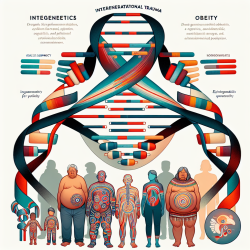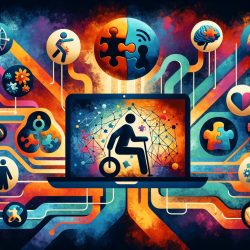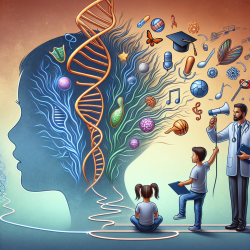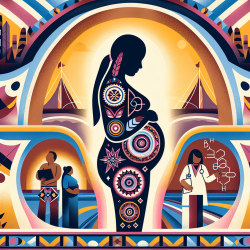The intricate relationship between intergenerational trauma, epigenetics, and obesity is a burgeoning field of study that holds significant implications for understanding health disparities in Indigenous populations. A recent scoping review titled "The influence of intergenerational trauma on epigenetics and obesity in Indigenous populations" sheds light on how these elements interact and suggests pathways for future research and practice.
The Role of Intergenerational Trauma
Intergenerational trauma refers to the emotional and psychological wounds passed down from one generation to the next. In Indigenous communities, this often includes historical traumas such as colonization, forced assimilation policies, and loss of cultural practices. These experiences can have profound effects on mental health and behavior, influencing lifestyle choices that contribute to obesity.
Epigenetics: The Biological Mechanism
Epigenetics involves changes in gene expression that do not alter the DNA sequence but can be passed down to subsequent generations. Factors such as maternal nutrition, stress during pregnancy, and environmental influences can lead to epigenetic modifications that affect an individual's susceptibility to obesity. This scoping review highlights how these changes can be linked to intergenerational trauma.
Obesity as an 'Epigenetic Disease'
The concept of obesity as an 'epigenetic disease' is gaining traction. Environmental impacts during early development can leave a 'nutritional imprint' that predisposes individuals to obesity later in life. This imprint involves alterations in physiological processes like metabolism and fat storage, which are influenced by both genetic predisposition and epigenetic modifications.
Key Findings from the Scoping Review
- Genetic and Epigenetic Factors: Obesity is influenced by both genetic predispositions and epigenetic changes triggered by environmental factors.
- Cultural and Biological Influences: Intergenerational trauma affects obesity through cultural behaviors (e.g., dietary habits) and biological mechanisms (e.g., stress responses).
- Paternal vs. Maternal Influence: While much focus has been on maternal transmission of traits, emerging research suggests paternal influences also play a role.
The Need for Further Research
The review calls for more empirical studies to explore the mechanistic pathways linking trauma, epigenetics, and obesity. Current literature primarily theorizes these connections without direct empirical evidence. Future research should aim to fill these gaps by employing robust methodologies that integrate biological data with social science perspectives.
Culturally Relevant Healing Frameworks
Culturally relevant programs are essential for addressing the unique challenges faced by Indigenous communities. These programs should be designed with input from Indigenous peoples to ensure they are respectful of cultural practices and effective in promoting healing from trauma. Multilevel frameworks that address individual, familial, and community needs are crucial for sustainable health improvements.
A Call to Action for Practitioners
This research underscores the importance of considering both cultural contexts and biological mechanisms when working with Indigenous populations affected by obesity. Practitioners are encouraged to engage with this emerging field by incorporating findings into their practice and advocating for policies that support culturally sensitive healthcare interventions.
To read the original research paper, please follow this link: The influence of intergenerational trauma on epigenetics and obesity in Indigenous populations - a scoping review.










